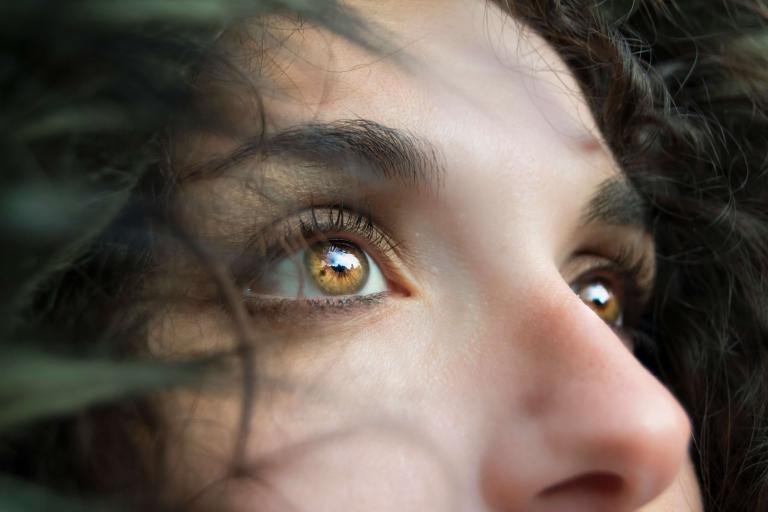
I once wrote a story titled “The Greatest Gift You Can Give Another.” And if you click on that link, you’ll discover that the gift I was talking about is a simple one: the purity of your attention. There’s no better way to show you value others, and make them feel valued, than to be fully present in every conversation and exchange.
But I’m now sensing the attention issue is much bigger than that.
The problem is our increasing inability to focus our attention on daily life and the stuff that really matters. Many of us have become prisoners to our own electronic devices. And when we’re constantly connected to our smartphones and tablets, scanning social network feeds or weather updates or sports scores umpteen times a day, we’re disconnected from everyone and everything else, including our true selves.
I devoted an entire article to the topic a few months ago based on Erick Godsey’s writings on “the shimmer.” But more recently, I’ve come across several stories about our collective attention deficit disorder. For instance, in a recent email, author and teacher John Phillip Newell wrote of our current “lack of awareness,” warning that:
When we are unaware of what is happening within us and oblivious to what is occurring around us, we are more likely to stumble in the dark than walk in the light.
Think about that for a moment: Unaware of what is happening within us. Oblivious to what is occurring around us. I’m sure you’ll agree, that’s no way to live. And Newell is just one of the voices that is warning us about our lack of focus. What follows are excerpts from a few other writers, lightly edited, all pointing to the same general problem and in some cases, solutions.
“When did we lose our consciousness?”
The question above was asked by Seth Godin in one of his daily blog posts. The issue isn’t just that we’ve lost consciousness, but that we’re seemingly unaware of it. And that may be the first step, to realize there’s a problem. Here’s an excerpt:
In medical TV dramas, losing consciousness is something that happens suddenly and dramatically. We can all tell… the body is still there, but the mind is gone, at least for now.
Unfortunately, this happens in real life. At work. In our personal lives. For a few minutes or even a decade or more.
We stop noticing. We fail to appreciate. Most of all, we stop making decisions.
Sleepwalking.
You probably don’t need a medical intervention. Instead, you simply have to find the guts to wake up.
“Attention is the substance of life.”
In The New York Times, podcaster and MSNBC host Chris Hayes wrote a lengthy guest essay about attention and his own struggles to master it. He sums up the issue here:
Attention, where we put our conscious thoughts in any given moment, is the substance of life. We are painfully aware of the constant claims on our attention — the buzz and zap of the phone and push notifications and texts and little red circles that alert us that there’s more to pay attention to that we haven’t even gotten to yet.
The solution? Hayes offers a few ideas, all of which take a little effort on our part. He references Jenny Odell’s book How to Do Nothing: Resisting the Attention Economy as a possible starting point, writing:
Odell proposes a “plan of action” that includes a kind of “dropping out not dissimilar from the ‘dropping out’ of the 1960s” as well as “lateral movement outward to things and people that are around us” and a “movement downward into place.”
Millions of people use prayer and meditation and other forms of spiritual and psychological practice toward the same ends. What these practices have in common is the cultivation of an inner discipline to resist that feral desire to distract oneself.
Is “Big Brother” making sure we’re distracted?
On his weekly email newsletter 5-Bullet Friday, Tim Ferriss featured a quote from the late author Chuck Palahniuk that seems especially pertinent to our times. In the excerpt below, we might think of Big Brother not just as the government, but also the companies and social networks that are endlessly vying for (and scrambling) our attention.
Big Brother’s busy holding your attention every moment you’re awake. He’s making sure you’re always distracted. He’s making sure you’re fully absorbed. He’s making sure your imagination withers. Until it’s as useful as your appendix. He’s making sure your attention is always filled. And this being fed, it’s worse than being watched. With the world always filling you, no one has to worry about what’s in your mind. With everyone’s imagination atrophied, no one will ever be a threat to the world.
Maybe we should watch our attention like we watch our weight.
The message below comes from the Instagram account of Humans of New York writer and photographer Brandon Stanton. It paints a vivid picture of our dilemma and asks us to take steps to better control our impulses in the new year.
So what if you paid more attention to the good things in life?
Our world has become more hardwired to give us more of what we pay attention to. This is especially true in social media, whether we’re talking about Facebook, Instagram, or the site formerly known as Twitter, or even TV apps like Hulu and Netflix. These apps want one thing—our attention.
At the beginning of this new year, as we make plans to control our calories, our drinking, our exercise—perhaps we should begin by controlling what we pay attention to. Because what you pay attention to—expands. Choose carefully. If at any point you become conscious that you are not the one choosing—pause. Perhaps the most powerful choice you have left is to turn off the screen.
I started this story mentioning the greatest gift you can give another. But now it’s time to consider perhaps the greatest gift you can give to yourself: owning your attention. Resolving to protect it may be the most important resolution you can make this year.













